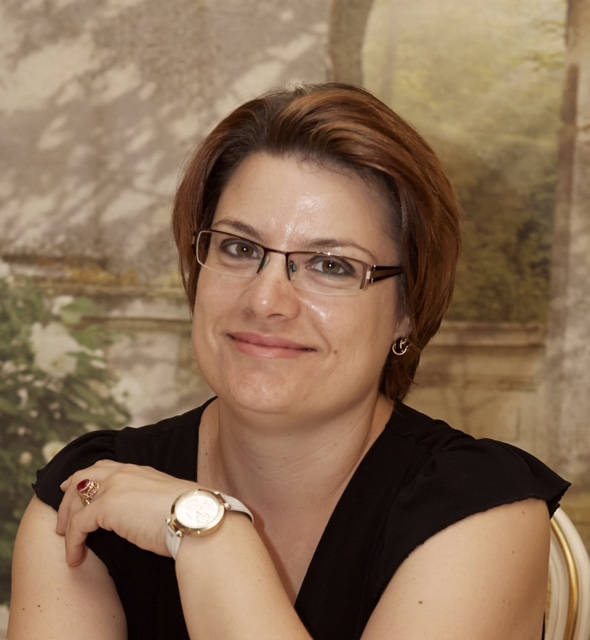
It was the summer of 2008 and I spent the most wonderful vacation carrying my twin baby girls. At our 21 week antenatal check-up upon our return to Sofia the doctor flagged a “small” problem: one of the babies didn’t appear to have enough amniotic fluid and the doctor recommended frequent checkups and bedrest.
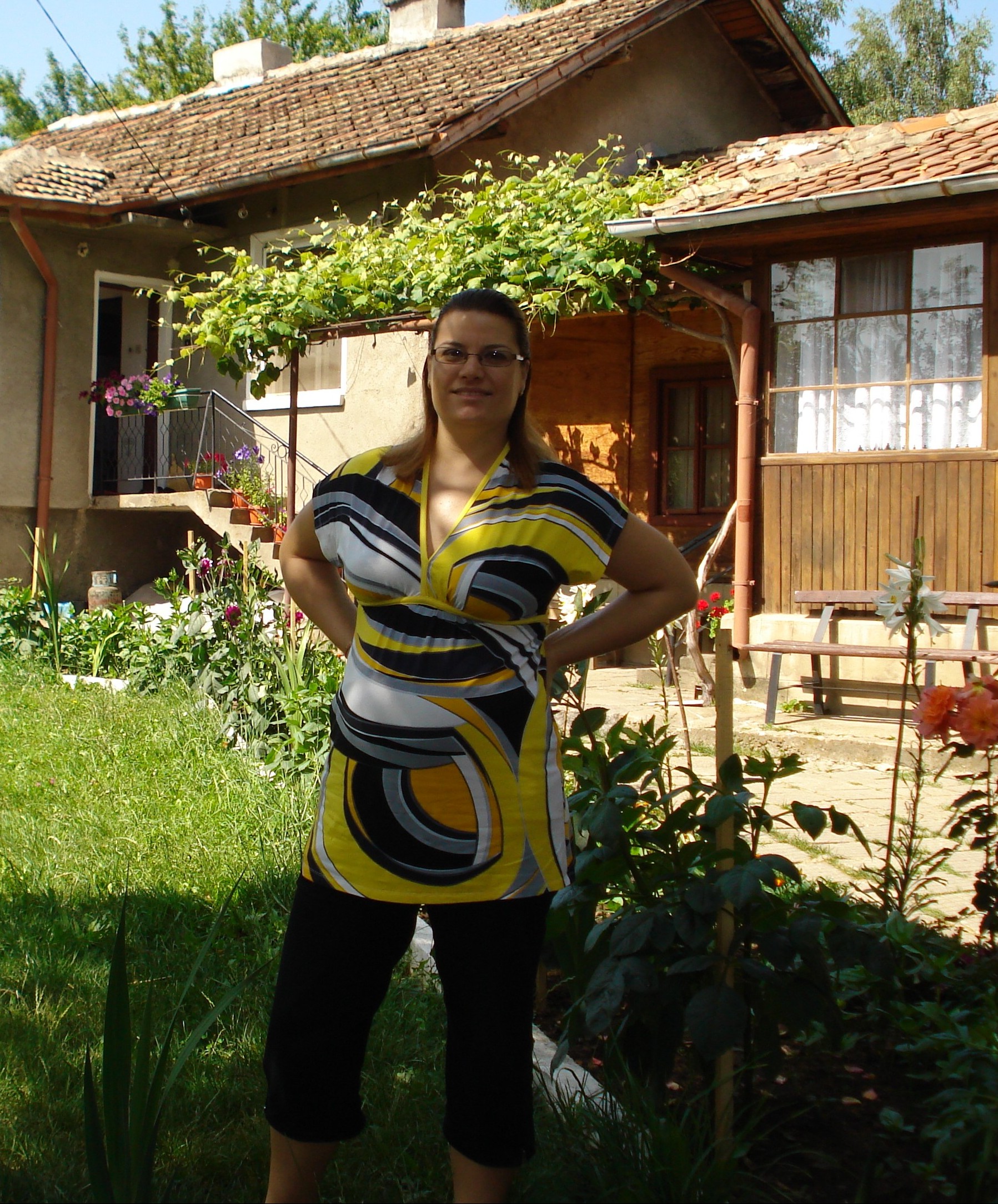
At week 22, I experienced some minor bleeding and went to the emergency room of the hospital. I spent two very difficult weeks on total bedrest in the hospital; resting alone in bed and praying. I had some visitors, but the only thing that was important to me was to hold my babies inside of me as long as possible.
Everything changed one day at 4pm, when I experienced a terrible internal pain and my waters broke. Instinctively I knew it, it was the beginning of the end. My husband spent the night on the floor next to my bed trying to sleep and trying to comfort me. Intermittently he would leave my bedside and go for a walk. I often wondered why he left me, but a year later he confessed he simply had to be alone to deal with the pain of the situation and his fear that he could lose our children and me, and he didn’t want me to see his tears and heartache. Premature birth affects not only the mother, but has a ripple effect on the entire family network, in particular those close to us. We have to remember that we are not alone in that journey and that the person next to us is there to support us.
After 22 hours of huge and unbearable pain, I delivered my baby girls at 24 weeks of pregnancy, naturally. Every step of the labor is etched in my memory: the pain, the anger, the unbearable fear of the unknown and the feeling of powerlessness. Immediately after the delivery my two beautiful little girls were taken away from me. I didn’t have an opportunity to see them, touch their fragile bodies, tell them I loved them (and was so dreadfully sorry). It would be several hours before anyone would tell me how they were. I just lay there in my limbo state wondering if my babies had even survived.
I was transferred to my room and after I woke up, the only thing I wanted to do was go home, to start my life from the very beginning and to forget what had just happened to me and to my family. Suddenly my whole world change completely. The doctor came to my bedside and asked if I was ready to meet my babies. I was utterly shocked to discover that they had survived.
Our 5 month NICU journey unfolded… I approached the incubator with trepidation to meet my beautiful baby girls… They were so small, tiny, beautiful, and perfect. Unfortunately my second daughter passed away after two days without us having the opportunity to touch, hold, hug or kiss her. Bulgarian law decrees than an infant that is born below 1000 grams and does not survive for 7 days is not entitled to receive a name so our beautiful little girl who had lived inside of me for 24 weeks and had blessed our lives for 2 short days was taken away from us by the hospital and burnt along with the hospital garbage. Words cannot describe the pain of losing a child and having to be strong for the surviving twin. My heart was broken for my loss, but I cried my tears at home before putting on my strong supportive face for our daughter.
I waited with bated breath for day 7 to arrive so we could finally name our daughter Alexandra. I was lucky to deliver my babies in one of the most modern hospitals in Bulgaria, so we were permitted to visit Alexandra every day. Our visitation was limited to one hour and only one visitor was permitted at a time. After the birth of our girls I was given pills by the doctors to stop my milk and it was so distressing to see the other mothers in the unit breastfeeding when I had been denied the option.
I found myself immersed in a world that I knew nothing about; I had never heard the word premature birth let alone know anything about the risks and consequences.
The NICU is a strange place; noisy, full of fear, lined with incubators, strange machines and equipment, babies with tubes and lines coming from every inch of their little bodies and staff that scared you. It was extremely difficult to obtain reliable information about preterm birth, but I did manage to find an online site and started to inform myself.
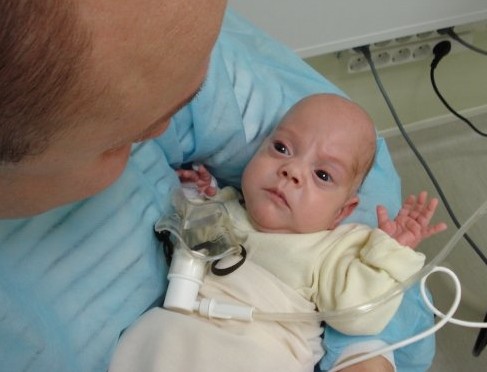
Alexandra’s respiratory status continued to worry her doctors and after many investigations on her lungs it was discovered that she was suffering from Bronchopulmonary dysplasia. Her lungs were not developing and despite the initial elation that the lungs would recover the outlook soon turned bleak – she would require oxygen to stay alive. We were summoned to the head doctor’s office to be told that the doctors had done all they could for Alexandra and they could do no more for her.
We set about contacting hospitals in Germany, Canada, Israel and Australia in the hope that someone might be able to offer Alexandra some hope. However all the replies reflected what the Bulgarian doctors had told us until we received some hope from a hospital in Israel. Following a conference call and a transfer of 70,000 USD (an enormous amount of money for us given the average monthly Bulgarian salary in 2008 was €300), we prepared to transfer Alexandra to Israel for treatment.
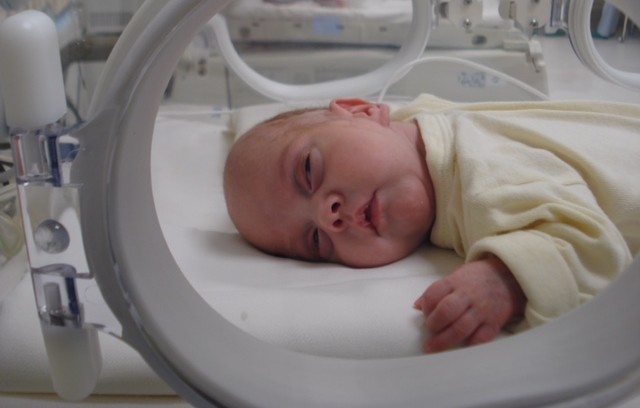
Unfortunately, there was no dedicated neonatal transport service available in Bulgaria to transfer Alexandra, so we had to privately fund the transfer ourselves (€20000). Transporting an intubated infant is difficult even with the best of medical support and we were faced with the prospect of having to source a transport incubator ourselves. Making that journey to the airport with just Alexandra, the doctor, and the driver was a terrifying experience. My mind was in turmoil, my heart was breaking with the pain and fear that we might lose Alexandra and I had no-one to share my burden. Initially the doctor refused to transport Alexandra because she was intubated, so they tried for 30 minutes to extubate her and they hoped to keep her alive with an ambu bag for the flight, but regrettably it was not possible and on that freezing cold night in February the plane left without us. I was crying so hard the only thing that would have eased my pain was death. On Tuesday February 17, 2008 Alexandra returned to the hospital a very, very unwell baby.
Fortunately the Israeli hospital refunded the money we had paid them, but we lost the 20,000 euro –none of that mattered.
On Friday, the 20th of February we were summoned to the hospital by Alexandra’s medical team; we knew the news wasn’t good and this was the beginning of the end for our little girl. The doctor felt that she only had a few hours of life left in her tiny body that had fought so hard these past few months. My husband fainted to the floor when he entered Alexandra’s room. I entered and approached the incubator. She was staring at me, with an empty look, her breathing labored; saturation 80/40. I put my palm to the very cold incubator, I didn’t want to cry, I was to be strong for her, for my little hero. I told her that she can go. I left the room, I left her and I left the hospital.
At 5 pm we received the phone call that no parent ever wants to receive…Alexandra had passed away…a part of me died that day. The only clothes I had been brave enough to purchase for her, which were intended to be her discharge home clothes, ended up being her burial garments.
We cremated her and put her ashes in a tomb next to her grandfather. She will always be my little fighter, my angel, and my little daughter.
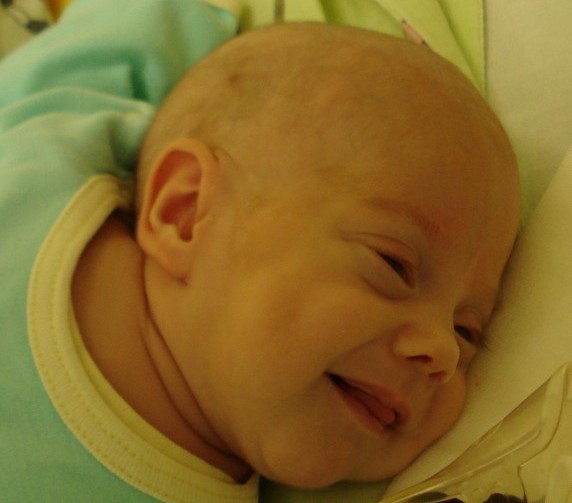
I had the best time with her for 5 months, singing to her, hugging her and loving her with all my heart.
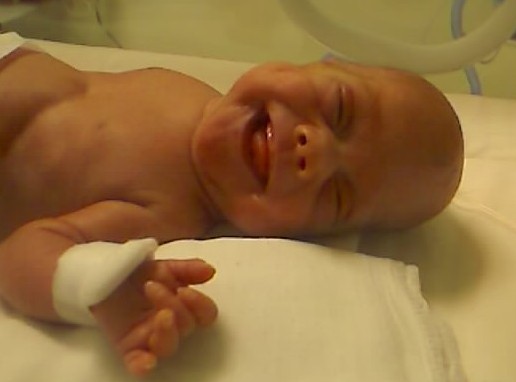
It is not easy to lose a child, but we have to be strong and happy to have the little time together. She made me believe that everything is possible, that everybody has his own way and time to Earth and we have to spent this time as much as we can and remember the good things and the happy moments.
NIDCAP did not exist in Bulgaria in 2008 and it still doesn’t today in 2016. I am just setting out on my journey to learn more about the NIDCAP care philosophy and am hopeful to one day ensure that all the babies cared for in our nurseries get this gold standard of care.
– Nina Nikolova
Chairwoman and Co-Founder of Our Premature Children Foundation, Bulgaria
Member, Parent Advisory Council, NIDCAP Federation International, Inc.
Sales Manager, Bulgarian Land Development
